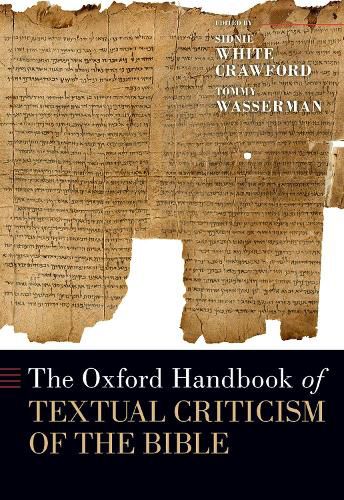Readings Newsletter
Become a Readings Member to make your shopping experience even easier.
Sign in or sign up for free!
You’re not far away from qualifying for FREE standard shipping within Australia
You’ve qualified for FREE standard shipping within Australia
The cart is loading…






Oxford Handbook of the Textual Criticism of the Bible provides an overview of the disciplines of textual criticism of the Hebrew Bible and the New Testament as practiced in the twenty-first century. This volume first explores overarching issues like the formation of the Jewish and Christian canons; philosophical presuppositions in the methods and goals of textual criticism; the complex relationship between literary criticism and textual criticism; and how related fields of Book History, New/Material Philology, and paratextual criticism pose challenges and enrich traditional biblical textual criticism. Subsequently addressed is the textual criticism of the books of the Hebrew Bible, a field which has undergone a paradigm shift since the discovery of the Judean Desert scrolls. Each chapter discusses this shift in various ways, representing different philosophies of and approaches to the ways in which textual criticism can be practiced in a "post-Judean Desert texts" world. Finally, the text discusses the textual criticism of the New Testament and provides chapters concerned with the Greek manuscripts and the indirect evidence of the text in early versions and citations, as well as past and current methods for evaluating this evidence including the Coherence-Based Genealogical Method (CBGM).
$9.00 standard shipping within Australia
FREE standard shipping within Australia for orders over $100.00
Express & International shipping calculated at checkout
Stock availability can be subject to change without notice. We recommend calling the shop or contacting our online team to check availability of low stock items. Please see our Shopping Online page for more details.
Oxford Handbook of the Textual Criticism of the Bible provides an overview of the disciplines of textual criticism of the Hebrew Bible and the New Testament as practiced in the twenty-first century. This volume first explores overarching issues like the formation of the Jewish and Christian canons; philosophical presuppositions in the methods and goals of textual criticism; the complex relationship between literary criticism and textual criticism; and how related fields of Book History, New/Material Philology, and paratextual criticism pose challenges and enrich traditional biblical textual criticism. Subsequently addressed is the textual criticism of the books of the Hebrew Bible, a field which has undergone a paradigm shift since the discovery of the Judean Desert scrolls. Each chapter discusses this shift in various ways, representing different philosophies of and approaches to the ways in which textual criticism can be practiced in a "post-Judean Desert texts" world. Finally, the text discusses the textual criticism of the New Testament and provides chapters concerned with the Greek manuscripts and the indirect evidence of the text in early versions and citations, as well as past and current methods for evaluating this evidence including the Coherence-Based Genealogical Method (CBGM).